Originally posted in the Inner Field Trip® community on Patreon on October 11, 2022
At 3:06pm Eastern on October 11, 2017, I published a post on my blog containing nine writing prompts to address spiritual bypassing, tone policing, and unconscious biases related to skin colour advantages. In just four hours, the post was shared 1,000 times. In three weeks, it was shared 10,000 times. That had NEVER happened to any of my blog posts ever – and I had been blogging since 1999.
The prompts were birthed to address a toxic interaction I (and a few others) had with a racist, xenophobic, and misogynistic man who has influence over a large coaching community. I had used expressive writing (also known as narrative therapy, therapeutic journaling, write to heal, or reflective journaling) to address complex emotions and heal intergenerational wounds. When I offered them to him, he rejected the prompts. I posted them on my blog instead.
The nine writing prompts were referenced in many articles, books, and internal documents. It was shared tens of thousands of times since 2017. Here’s what happened after that blog post went viral:
- My social platforms grew organically on both Instagram and YouTube (this is one GenXer who does NOT use Facebook).
- I launched an online community where I publish new journaling prompts and hold expressive arts classes. To date, I’ve written close to 300 writing prompts and recorded hundreds of hours of video and audio content that have been expanded into courses.
- I launched a multi-city tour in 2019 that was backed, financially, by patrons (that’s what community members are called in the Inner Field Trip® community and will change to Brave Trekkers once we move to a new app). This allowed me to meet my community in person AND see how people react to the Inner Field Trip® framework in person. So many lessons learned.
- The Inner Field Trip® process is being published in a workbook and card deck format by Row House Publishing (workbook is set to be published in November 2023).
- Being the Online Community Manager and Founder for Inner Field Trip® inspired me to pursue graduate studies in counselling psychology. I’m learning that many of the tools I have been using to help patrons meet their Inner Oppressor so they can become better ancestors are based on therapeutic modalities. It’s no wonder that some of my patrons who are social workers and therapists have told me that I’d make a great therapist!
These professional accomplishments don’t capture my personal successes which are too many to mention. I will say that meeting myself and my Inner Oppressor made me more compassionate, less rigid, and more accepting, not only of others, but also of myself.
In the five years since writing that viral blog post, I learned one incredibly important thing…
When I wrote that blog post, it was in response to a single individual. Yet, in the years since that blog post went viral, I noticed that the same behaviours show up in people no matter their social, ethnic, biological, or behavioural identities (SEBBIs for short). All of us, including me, engage in identity-based oppression unconsciously or consciously that hurt or harm other people.
It is our duty to develop a daily self-reflection practice to address what we don’t know lies within us. Going years without engaging in compassionate self-inquiry can calcify toxic beliefs in our bones, nervous system, muscles, and cells. That feeling becomes so intensely gross, we end up disconnecting from our bodies, the very place where wisdom resides. When we are cut off from our bodies, our ego uses facts, statistics, intellectualization, and rationalization to convince ourselves that everything is okay. Yet, this constant need to hide how we truly feel leaves us feeling tired, tense, and trapped.
For this reason, I no longer critique people; I now critique patterns…
Patterns are what we resort to when we’re feeling activated and agitated. Some of those patterns are healthy. For example, if you’re feeling irritated, you may see that as a sign to go for a walk or take a break. For most of us, however, we are no longer in tune with what activates us and no longer have the words to describe what we’re feeling. We’ve lost our somatic literacy (the ability to read, decipher, and name our body sensations) a long time ago and walk around doing whatever the dominant culture wants us to do.
Like the Bloater who appeared in Season 1, Episode 5 of The Last of Us, the problem can be buried, but it doesn’t go away. It just grows in the darkness until it finally bursts through to the surface. You rely on quick fixes to make the problem disappear, but it only gets worst.

To change the individual, we need to change the culture…
Each individual needs to do their own work because cultures are made up of people. An individual can be changed by an experience, then return to their environment and resume their bad habits. That’s why the work of decolonizing, deconstructing, and deprogramming is both/and.
People are a result of the environments they were raised in, the cultures that socialized them, and the people that raised them. There are also biological, systematic, and psychological factors that can shape a person’s worldview, beliefs, behaviours, and actions.
I’m thankful to my community of patrons and my studies in counselling psychology for making me even more aware of the multiple factors contributing to our biases, beliefs, worldviews, and behaviours. My curiosity is now heightened and I lean into that more than trying to figure someone out. I prefer that people tell me who they are because that is a much more fun and exciting exercise. I’m deeply interested in how people describe themselves and the experiences that have shaped who they are today. That can only happen if I ask questions, listen intently, and reflect back what I’m hearing them say. These are skills I already possessed that have only become better due to my process of self-reflection.
Of course, I do protect myself. There are some who are closed-minded and cling to their oppressive and dehumanizing beliefs. If my safety is at risk, I stay away and do not engage. It is also not my duty to educate people using my trauma as a teaching tool. In the opening statement of a book entitled Fatty Legs, one of the co-authors, Christy Jordan-Fenton, reminds readers that Indigenous people have a Right to Silence regarding their experience in residential schools. This Right to Silence can also be invoked by Black people who do not wish to share racial trauma, harassment, or violence.
We have A LOT to do to change culture…
A culture based on curiosity, compassion, cooperation, and community feels more nourishing than one based on competition, rigidity, judgement, and rugged individualism. We can get there. Some actions you can take:
- The journaling prompts I offer here and in the upcoming workbook are just a few ways to develop a self-reflective practice.
- This post also offers additional ways to continue interrogating your Inner Oppressor and the unconscious biases you may hold.
- Working with a therapist, mental health professional, or counsellor can help you address the differences between what you believe and how you behave.
- Making a commitment to being in community with those working towards a pro-human, pro-equity, and pro-inclusion world.
Small changes done today may not take shape until generations from now. Be patient because personal exploration done today leads to collective liberation and generational healing tomorrow. It’s time to pass on healing and not harm. Let’s become better ancestors!
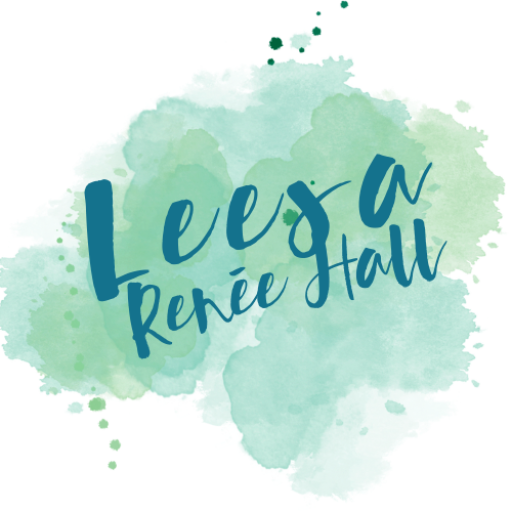
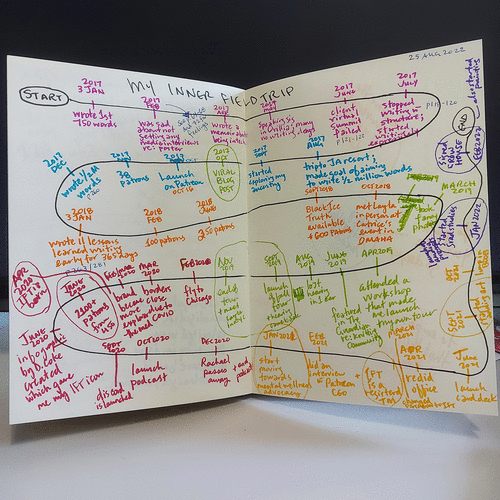
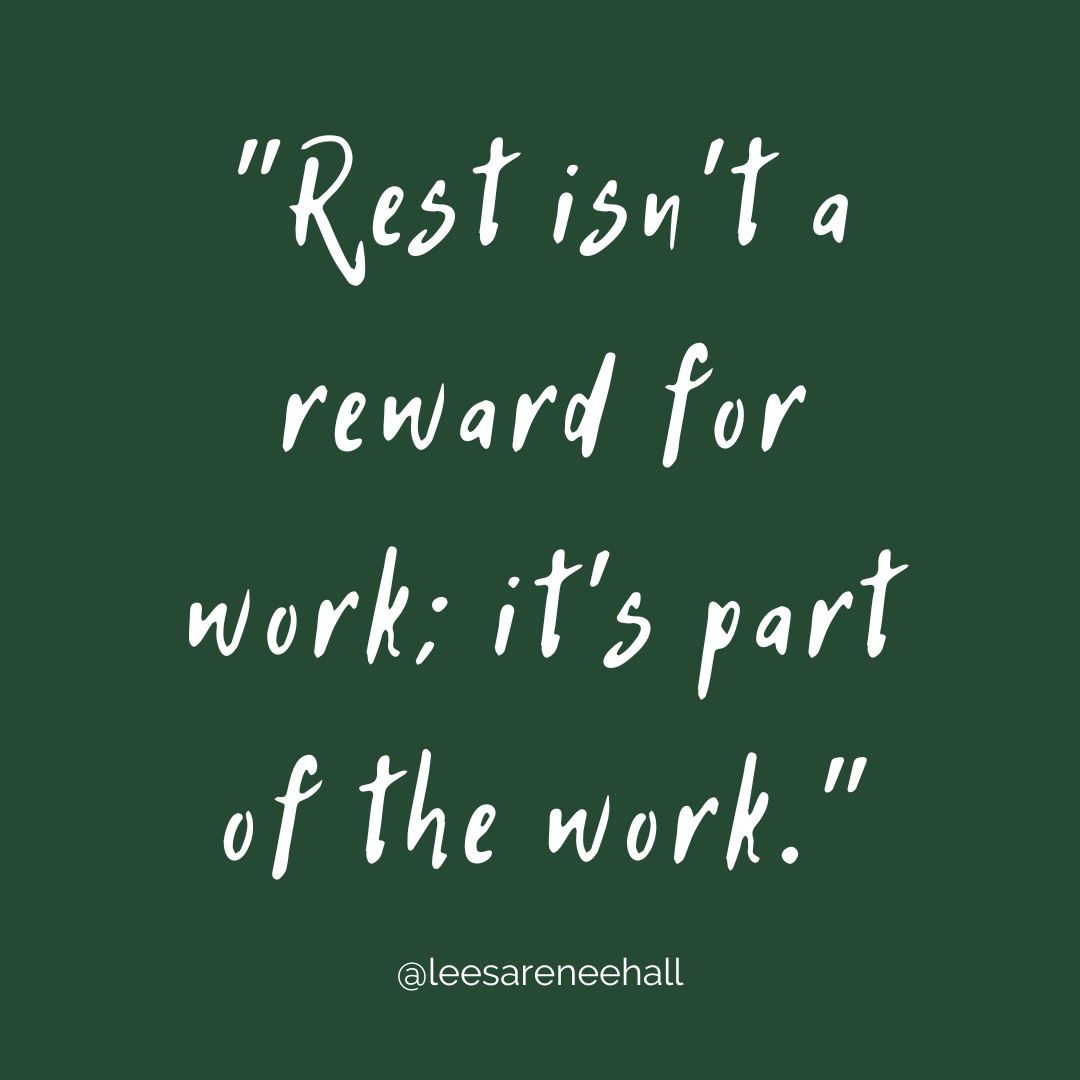
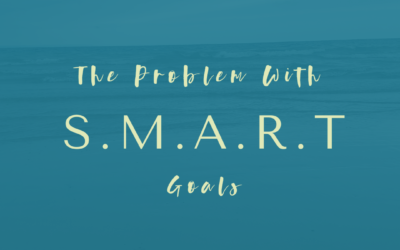
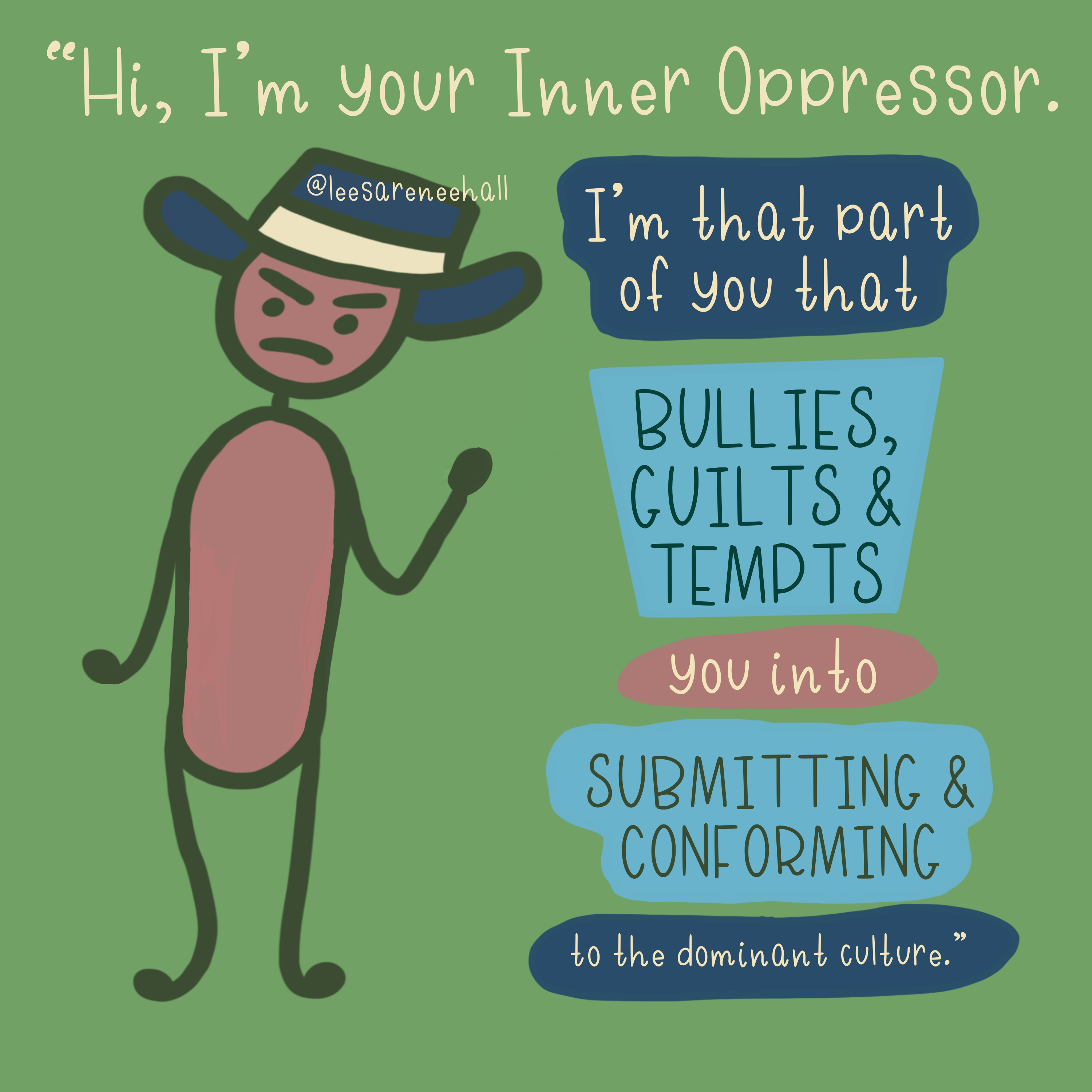
0 Comments